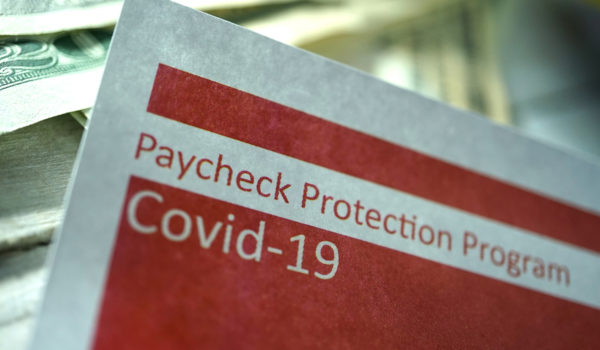This is part of our “Preparing for an SBA PPP Audit Series,” which is aimed at providing informed and real-time guidance on how to comply with the PPP and prepare for an audit by the SBA.
Additional articles:
Preparing for an SBA Audit: What are the Risks?
Preparing for an SBA Audit: Eligibility and Loan Amount Compliance Issues
Preparing for an SBA PPP Audit: The Necessity Certification
The Small Business Administration issued a new interim final rule on May 22, 2020 discussing the process that the SBA will use to review Paycheck Protection Program (PPP) loan applications and a borrower’s responsibilities during that process. The procedures discussed also govern the SBA’s review of applications for loan forgiveness. As businesses seek to understand the criminal and civil enforcement risks associated with PPP loans, it is essential that businesses are familiar with the SBA’s review procedure, which has the potential to end in our previously summarized referrals for criminal or civil penalties if the SBA believes misrepresentations were made during the loan application process. Similar risks are at play if the government believes a business has made misrepresentations to the SBA during the loan review process.
What the SBA Will Review:
Under the new interim final rule, the SBA affirmed that it would review individual PPP loans, and that the “SBA may review any PPP loan” as it deems appropriate, consistent with the rest of the interim rule. Such a review may consider a borrower’s eligibility for the loan, the loan amounts included in a borrower’s application, the use of loan proceeds, or loan forgiveness amounts.
With respect to loan eligibility, the SBA may review whether a PPP loan recipient is eligible based on the applicable provisions of the CARES Act, the rules and guidance available at the time of the recipient’s application, and the terms of the loan application. As a part of the review, the SBA may look at “the information, certifications and representations” on the borrower’s application form or loan forgiveness form.
With respect to loan amounts and loan use, the SBA may check whether a recipient calculated the loan amount correctly and whether the recipient used the loan for authorized purposes. Similarly, with respect to loan forgiveness amounts, the SBA may analyze whether the borrower is entitled the amounts claimed on the borrower’s loan forgiveness form.
When SBA Reviews Will Occur:
The SBA clarified that “[f]or a PPP loan of any size, SBA may undertake a review at any time in SBA’s discretion.” As an example, the interim final rule mentioned a scenario whereby loan documentation that a lender submitted to the SBA indicated that a PPP loan recipient might be ineligible for either the loan, the claimed loan amount, or the claimed loan forgiveness amount.
Obligations of a Loan Recipient Under Review:
To facilitate the SBA’s review, the interim rule reminds borrowers that, as noted on the SBA’s loan forgiveness form, borrowers must retain all PPP documentation in their files for six years after the date the loan is either forgiven or repaid in full. Borrowers must allow the SBA’s Office of Inspector General (SBA-OIG), or other authorized SBA personnel, to review those files upon request.
Borrowers will have the opportunity to respond to any questions that the SBA has during the review, and to provide additional information. If the SBA believes that a borrower may be ineligible for either the PPP loan, a specific loan amount, or claimed loan forgiveness amount, then the “SBA will require the lender to contact the borrower in writing to request additional information.” Alternatively, the SBA may contact the borrower directly to seek such information.
Borrowers should be responsive to the SBA in the event of any inquiry. Under the interim rule, if a borrower neglects to answer an inquiry from the SBA, it may result in a determination that the borrower was ineligible for either the PPP loan, a specific loan amount, or claimed loan forgiveness amount.
Ineligibility Determinations:
If the SBA review determines review that a PPP loan recipient is ineligible for the loan, then consistent with the CARES Act, the loan cannot be forgiven. The SBA will instruct the lender to deny the forgiveness application. If instead the SBA determines that the recipient is ineligible for the claimed loan amount or loan forgiveness amount, then the “SBA will direct the lender to deny the loan forgiveness application in whole or in part, as appropriate.” Under these scenarios, in addition to denying loan forgiveness, “the SBA may also seek repayment of the outstanding PPP loan balance or pursue other available remedies.”
A loan recipient who was deemed ineligible (or whose loan amount or forgiveness amount was deemed ineligible) may appeal the SBA’s ineligibility determination. The SBA will issue a separate interim final rule discussing the appeal process.
When dealing with the SBA-OIG, or any other representatives of the SBA who are conducting a review of PPP loan applications, a borrower should consult with counsel in order to receive individualized guidance for navigating the SBA’s review process.
For more information, please contact Kevin Tierney, Gabe Davis or any attorney in Frost Brown Todd’s Financial Services Industry Team or Business & Commercial Litigation Practice Group.

